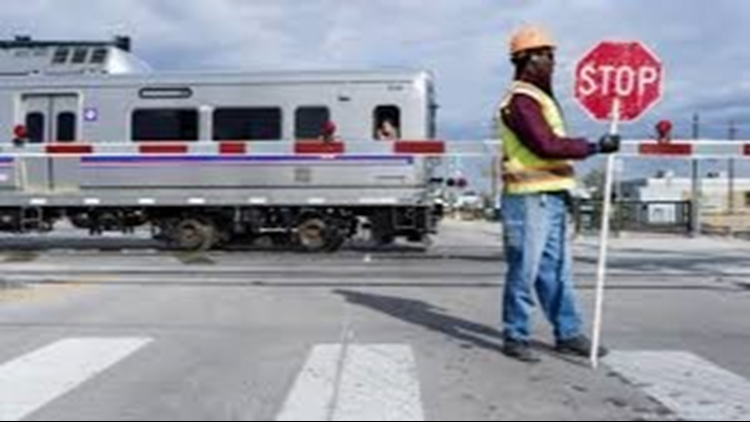DENVER — Denver Transit Partners, the group of contractors that operates the A Line and yet-to-open G Line, is suing the Regional Transportation District for an alleged breach of contract.
According to the complaint filed in court on Thursday, DTP says the agreement made with RTD years ago outlined provisions for handling changes in the law and new interpretations of the law by the Federal Railroad Administration or Colorado's regulatory agency, the Public Utilities Commission.
The trains have been scrutinized by the federal and local governments because of concerns with the timing of the crossing gates, which meant guards had to stand at each location. While long-standing guards were allowed to leave their posts along the A Line earlier this summer, the train's horns still blare at every crossing because the FRA has not said the train meets the prerequisites for quiet zones, much to the dismay of neighbors.
The G Line remains in a testing phase as the A Line awaits full approval.
DTP says it's spent millions on unanticipated costs, paying for the guards and various design changes in order to meet the FRA and PUC requirements made since the A Line opened in 2016. DTP wrote in the lawsuit that the FRA and PUC have handled the A and G lines in an unprecedented way, and the original contract should cover the demands made on the trains.
DTP now wants the court to grant them reimbursements from RTD.
In a statement to 9NEWS, DTP wrote:
“DTP is following the steps as outlined in the Dispute Resolution section of the contract agreement with RTD. That procedure calls for a review and decision by the Court when RTD and DTP have not been able to agree on a resolution. This is a commercial matter between the agencies and DTP is simply protecting its position by exercising the escalation next steps as outlined in the contractual agreement.
We will continue to provide safe and best-in-class service to RTD and the public while we work diligently on the remaining tasks required to put the G Line into passenger service.”
RTD, however, is placing blame on its counterpart. In a press release, RTD wrote they've tried to negotiate with DTP for months, but negotiations broke Wednesday.
The release also explained DTP shouldn't blame others for taking years to figure out the crossing gates, and that DTP said in the past it would foot the bill for the guards.
The statement said, in part:
"It has taken DTP not just months, but years to optimize their system to the point where safety regulators are reasonably satisfied. With all due respect, RTD thinks DTP should be looking within, rather than trying to blame safety regulators, for the challenges DTP has faced."



